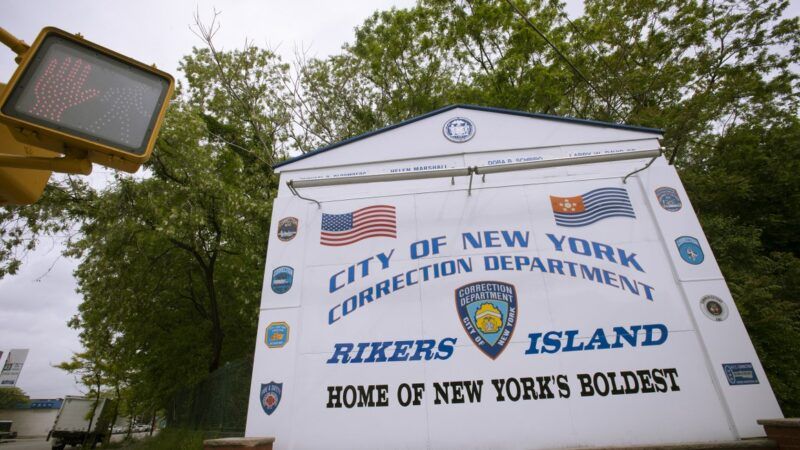Rikers Island Sees 2 Prisoner Deaths in 2 Days
Just a week ago, New York City convinced a federal judge not to seize control of the jail.

It's been a week since a judge approved an action plan to reform the dangerous and troubled Rikers Island jail in New York City to avoid a federal takeover, and there have already been two inmate deaths.
On Monday, Rikers Island officials announced the death of Anibal Carrasquillo, 39, most likely of a drug overdose. Carrasquillo is the seventh prisoner to die in custody on Rikers Island this year. Then on Tuesday, the Department of Corrections announced the death of Albert Drye, 52, making him the eighth death. The circumstances of his death have not yet been released.
Just a month ago, another inmate, Emmanuel Sullivan, was found dead in his bed on Rikers. He was the third inmate to die just in May.
Rikers had 16 prisoners die while in custody in 2021, and widespread staff shortages have turned the detention center—which already had a well-deserved reputation for corruption and dysfunction—into a complete hellhole. More than 1,000 correction officers out of 9,000 are failing to show up for work on an average day.
A federal monitoring team had encouraged intervention to try set things aright there. A letter from the team to federal U.S. District Judge Laura T. Swain last summer warned, "This state of seriously compromised safety has spiraled to a point at which, on a daily basis, there is a manifest risk of serious harm to both detainees and staff, which in turn, generates high levels of fear among both groups with each accusing the other of exacerbating already challenging conditions."
But Mayor Eric Adams and his Department of Corrections Commissioner Louis Molina resisted a complete federal takeover and had submitted a lengthy reform plan to Swain promising to change sick leave and absence policies and shake up staff. At the same time, another judge found the city in civil contempt for failing to provide proper medical treatment to detainees and ordered it to fix the situation.
Nevertheless, in a June 13 decision, Swain accepted New York City's reform plan and gave the city until November to "demonstrate their ability to make urgently needed changes."
Obviously a week is not enough time to completely reform this broken jail system, but two deaths happening just days after Swain accepted the plan is certainly an indicator of how dire the situation is.
And to be clear, it's important to understand that as a detention center, Rikers has thousands of inmates who have been arrested and charged with crimes, but have not yet been convicted. These are people who are supposed to be treated with the presumption of innocence.
Sullivan, for example, had been arrested in February on murder and robbery charges, but he had not yet been tried and convicted. The New York Post notes that Drye had two open cases of assault and possession of a weapon awaiting prosecution. The first inmate to die at Rikers in 2022, Tarz Youngblood, had been arrested on a domestic violence charge and was unable to pay the $10,000 bail order. And so he remained in jail for six months awaiting justice. He died in jail without being convicted of the crime that got him arrested.
It should go without saying that it's unacceptable for inmates to be dying in prison when these deaths are preventable, even if they have been convicted of crimes. But above and beyond that, we should see it as absolutely abhorrent and unacceptable when people who haven't even been convicted of a crime are dying while in the state's custody.


Show Comments (26)